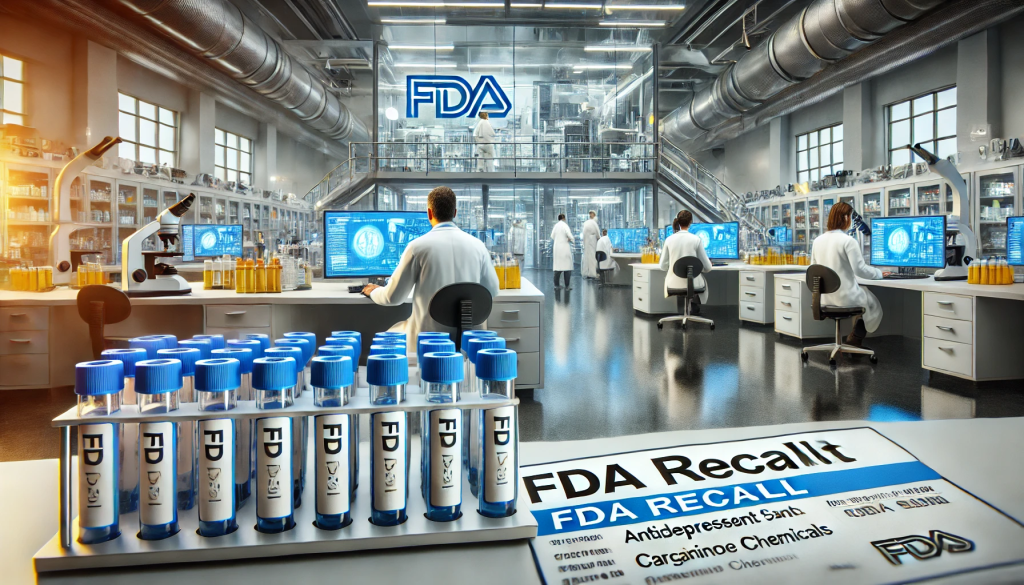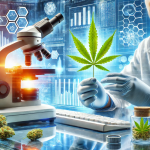Antidepressants have revolutionized modern mental health treatment, offering hope to millions of people battling depression, anxiety, and other psychological disorders. However, the recent announcement that the FDA is recalling over 233,000 bottles of antidepressants due to the potential presence of carcinogenic chemicals has sent shockwaves through the medical community and among patients. This article delves deep into what this recall means, its implications, and how patients can stay informed and protected.
Understanding Antidepressants: What Are They and Why Are They Essential?
Antidepressants are medications designed to alleviate the symptoms of depression and related conditions by restoring the balance of neurotransmitters in the brain. These drugs are not just about improving mood—they help individuals regain motivation, focus, and a sense of control over their lives.
Common Classes of Antidepressants:
- Selective Serotonin Reuptake Inhibitors (SSRIs): Popular examples include fluoxetine (Prozac) and sertraline (Zoloft). These medications are often the first-line treatment due to their effectiveness and relatively mild side effects.
- Serotonin-Norepinephrine Reuptake Inhibitors (SNRIs): Medications like venlafaxine (Effexor) are used to target both serotonin and norepinephrine pathways.
- Tricyclic Antidepressants (TCAs): Though older, drugs like amitriptyline remain effective for certain patients.
- Monoamine Oxidase Inhibitors (MAOIs): Medications such as phenelzine are used less frequently due to dietary restrictions but can be lifesaving in treatment-resistant cases.
Antidepressants are not “happy pills”; they are tools that support individuals in overcoming debilitating mental health challenges.
Why Did the FDA Recall Over 233,000 Bottles?

The FDA’s decision to recall such a large quantity of antidepressants highlights the importance of rigorous quality control. The recall affects medications that may contain carcinogenic chemicals, specifically nitrosamines.
What Are Nitrosamines?
Nitrosamines are chemical compounds that can form during the manufacturing process of various drugs. While they naturally occur in some foods and the environment, excessive levels are linked to cancer. The FDA has strict guidelines on acceptable levels to ensure public safety.
Known Risks of Nitrosamines:
- Liver Cancer: Prolonged exposure to high levels has been associated with liver damage and cancer.
- Gastrointestinal Cancers: Nitrosamines have been implicated in cancers of the stomach and esophagus.
- Cumulative Exposure: While individual doses may seem negligible, long-term exposure through medications could pose significant risks.
Affected Medications: Which Antidepressants Are Involved?
The recall involves 233,000 bottles of antidepressants, including widely prescribed medications like venlafaxine (Effexor) and paroxetine (Paxil). Both drugs are commonly used to treat conditions ranging from major depressive disorder to generalized anxiety disorder.
Why These Medications?
- Contamination occurred during production, leading to levels of nitrosamines exceeding safe limits.
- Manufacturing inconsistencies were identified in certain batches, prompting the recall as a precautionary measure.
The Impact on Patients

For patients relying on these medications, the recall can be distressing. Antidepressants are essential for managing mental health, and the prospect of switching medications or facing potential health risks may seem overwhelming. However, it’s crucial to approach the situation calmly and with accurate information.
What Should You Do If You’re Affected?
- Do Not Stop Taking Your Medication Without Medical Advice: Abruptly discontinuing antidepressants can lead to withdrawal symptoms, mood instability, and a potential relapse of depression.
- Contact Your Healthcare Provider: They can review your treatment plan and, if necessary, prescribe an alternative medication.
- Stay Informed: Follow updates from the FDA and your medication’s manufacturer to ensure you are aware of next steps, such as returning affected batches.
Statistics and Facts: The Bigger Picture
To better understand the gravity of the situation, consider the following statistics:
- Antidepressant Use: In the United States, approximately 13% of adults take antidepressants, with usage rates even higher among women aged 40–59.
- Global Market: The antidepressant market was valued at over $16 billion in 2022, reflecting the increasing reliance on these medications.
- Previous Recalls: Since 2018, the FDA has recalled multiple medications due to nitrosamine contamination, including blood pressure drugs like valsartan.
The table below provides a comprehensive breakdown of key statistics related to the FDA recall of antidepressants due to potential carcinogenic chemicals, offering valuable insights into this critical issue.
| Category | Statistic | Details |
|---|---|---|
| Total Number of Bottles Recalled | 233,000 | This significant number highlights the scale of the FDA’s proactive response to potential contamination. |
| Drugs Involved | Venlafaxine, Paroxetine | These commonly prescribed antidepressants are used to treat depression, anxiety, and panic disorders. |
| Percentage of U.S. Adults Using Antidepressants | 13% of adults | Reflecting the widespread reliance on these essential mental health medications. |
| Increase in Antidepressant Use (Last 20 Years) | 64% increase | A staggering rise, emphasizing the growing prevalence of depression and anxiety disorders globally. |
| Potentially Carcinogenic Compound | Nitrosamines | Found in the recalled products, these chemicals are linked to an increased risk of cancer with prolonged exposure. |
| Acceptable Daily Intake of Nitrosamines | 96 nanograms per day (FDA guideline) | The recall was initiated when levels exceeded this limit, prioritizing public safety. |
| Number of Recalls for Similar Issues (Since 2018) | 35 recalls | The pharmaceutical industry has faced repeated challenges related to nitrosamine contamination. |
| Estimated Global Market for Antidepressants (2022) | $16 billion | Demonstrating the economic significance of these medications amid increasing mental health challenges. |
| Average Duration of Antidepressant Use | 2–5 years | Highlighting the long-term nature of mental health treatments, which amplifies the importance of drug safety. |
| Lifetime Cancer Risk from Nitrosamines | 1 in 100,000 for prolonged exposure | Based on current data, the risk remains low for short-term use but increases with long-term exposure. |
While this specific recall is alarming, it is part of a broader effort to ensure pharmaceutical safety.
The Science Behind the Risk: Antidepressants and Cancer

The potential link between antidepressants and carcinogenic chemicals is a subject of ongoing research. While the presence of nitrosamines is concerning, it’s essential to contextualize the risk:
- Short-Term Exposure: Most studies suggest that brief exposure to low levels of nitrosamines is unlikely to cause harm.
- Long-Term Risks: Chronic exposure, particularly at elevated levels, may increase the likelihood of developing certain cancers.
- Individual Vulnerability: Factors such as genetics, overall health, and medication duration play a role in determining risk.
Alternatives to Traditional Antidepressants
If the recall has left you questioning your treatment options, rest assured that there are alternatives. Mental health care is a multifaceted field, and medications are just one tool in a broader arsenal.
Non-Pharmaceutical Approaches:
- Psychotherapy: Cognitive-behavioral therapy (CBT) and interpersonal therapy (IPT) are evidence-based treatments for depression and anxiety.
- Exercise: Regular physical activity can boost endorphins and reduce stress.
- Diet and Nutrition: A diet rich in omega-3 fatty acids, antioxidants, and whole foods supports brain health.
- Mindfulness and Meditation: Practices like mindfulness-based stress reduction (MBSR) have proven benefits for mental well-being.
Natural Remedies:
Some patients explore herbal supplements, such as St. John’s Wort, though these should only be used under medical supervision to avoid interactions with other medications.
The FDA’s Role: Ensuring Public Safety
The FDA plays a critical role in protecting public health. By initiating recalls like this one, the agency demonstrates its commitment to holding pharmaceutical companies accountable. However, these events also highlight the importance of stricter oversight and transparency in drug manufacturing.
Conclusion: What This Means for You
The recall of over 233,000 bottles of antidepressants underscores the delicate balance between the benefits and risks of medication. For patients, this event serves as a reminder to stay informed, trust medical professionals, and actively participate in their treatment journey.
Antidepressants have transformed countless lives, and while this recall may seem daunting, it reflects the ongoing efforts to ensure medication safety. By working together—patients, healthcare providers, and regulators—we can navigate these challenges and continue advancing mental health care.
















